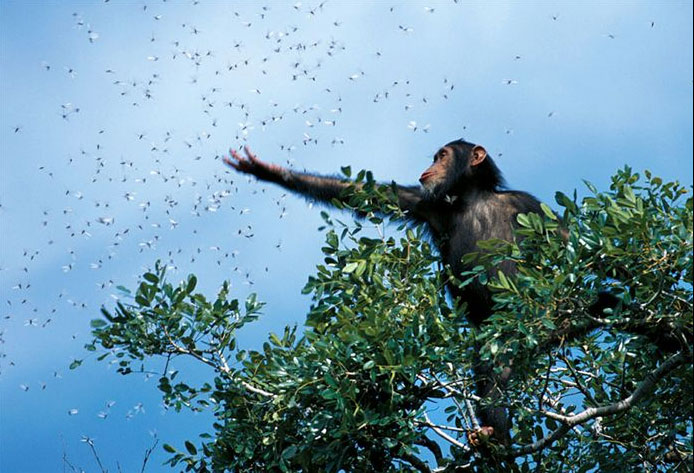
Human cognition has advanced beyond the underlying cognitive frameworks that enabled our species to emerge from three billion years of evolution. However, these frameworks still exert unrelenting pressure on our experience, coloring and triggering how and what we think. The potential for thought liberated from the influence of these underlying frameworks is perhaps limitless. Understanding the role our ancestral cognitive mechanisms play in our perceptual experience, with their advantages and limitations can assist in this liberation.
The arrogance of our acceptance of the idea that we are the only animals that think or experience emotion is profound. If one accepts that our species is a part of a living system that has evolved over billions of years, rather than a separate entity (perhaps created by some God), one must accept that our conscious minds extend from more primitive cognitive iterations, which can be identified both in our species and in other species extending from the same evolutionary root. These “primitive” cognitive mechanisms were at one time state-of-the-art sensory processing systems which established a foundation for further exploration of cognitive potentials. These cognitive mechanisms have distinct characteristics that we have broadly indexed as reflexes, drives, instincts, and emotions. Once this perspective is understood it quickly becomes apparent that almost all of what we consider as conscious, self-willed thought is either influenced or dominated by these “primitive” mechanisms of cognition. We rationalize our expressions of non-conscious cognition while ignoring the source of their expression. Sexual attraction, competitiveness, and anxiety are excellent examples.
These sections expand on the concepts elucidated above:
- DISCUSSION OF COGNITIVE MECHANISMS
- INTEGRATION: Our neurology combines data from a multitude of sources, both internal and external, from the past and from predictions about the future, into a course of action. How our brains achieve this is discussed here.
- ADAPTIVE CAPACITY: Change is stressful. Our perception of our ability to adapt to changing surroundings will inform the way that we respond, either as a challenge of a threat. This ancient perceptual mechanism is discussed here.
- PLEASURE AND PAIN
- ACTIVATION OF REFLEXES
- PROTECTION: Protecting ourselves is perhaps the first truly cognitive process our ancestors embraced, and as they evolved so did their tactics and strategies for protection. This evolutionary journey to our experience of safety is discussed here.
A discussion on our Sensory/Processing Core
THE SENSORY/PROCESSING CORE
A discussion on our core structural attributes:
THE FOUR CORES
A discussion on the models for our species presented on this website
ALL MODELS